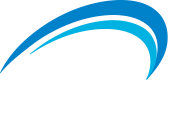SEND
At Arco Academy we pride ourselves on being an inclusive environment, especially when it comes to SEND.
SENCO Lead: Ms Fisayo Da’costa
Email: SENCO@arco.academy
Types of SEND (Special Educational Needs and Disabilities)
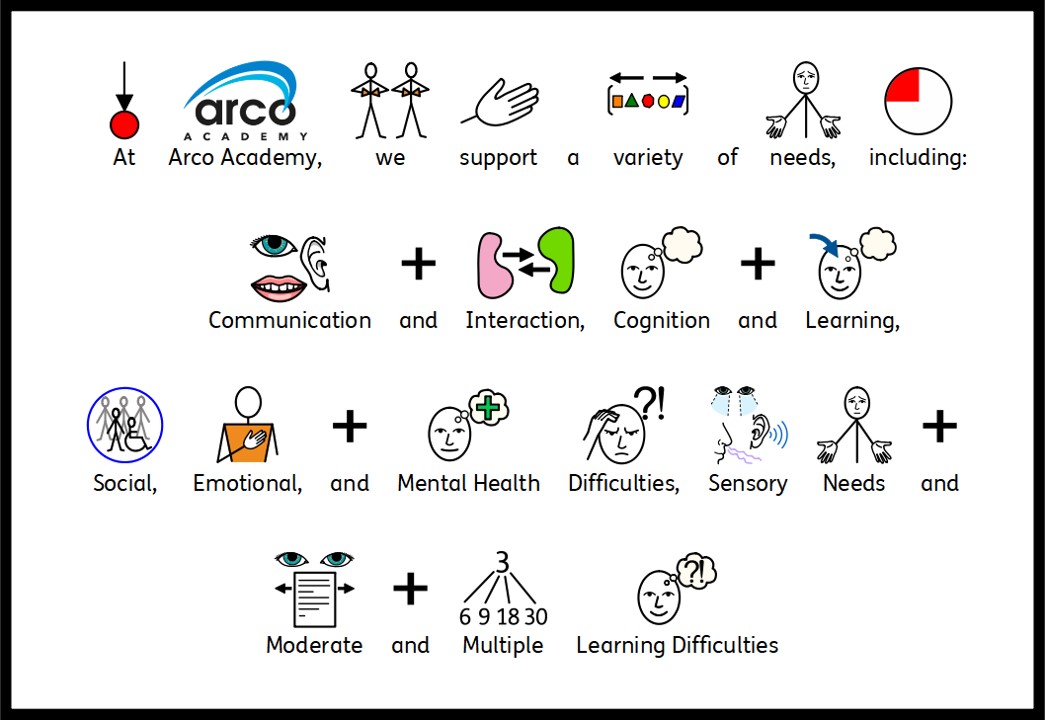
At our academy, we provide additional and/or different provisions for a range of needs, including:
- Communication and Interaction: For example, autistic spectrum disorder, Asperger’s Syndrome, and speech and language difficulties.
- Cognition and Learning: For example, dyslexia, dyspraxia, and moderate learning difficulties (MLD).
- Social, Emotional, and Mental Health Difficulties: For example, attention deficit hyperactivity disorder (ADHD).
- Sensory Needs: For example, sensory processing disorders.
- Moderate and Multiple Learning Difficulties
How We Identify Needs
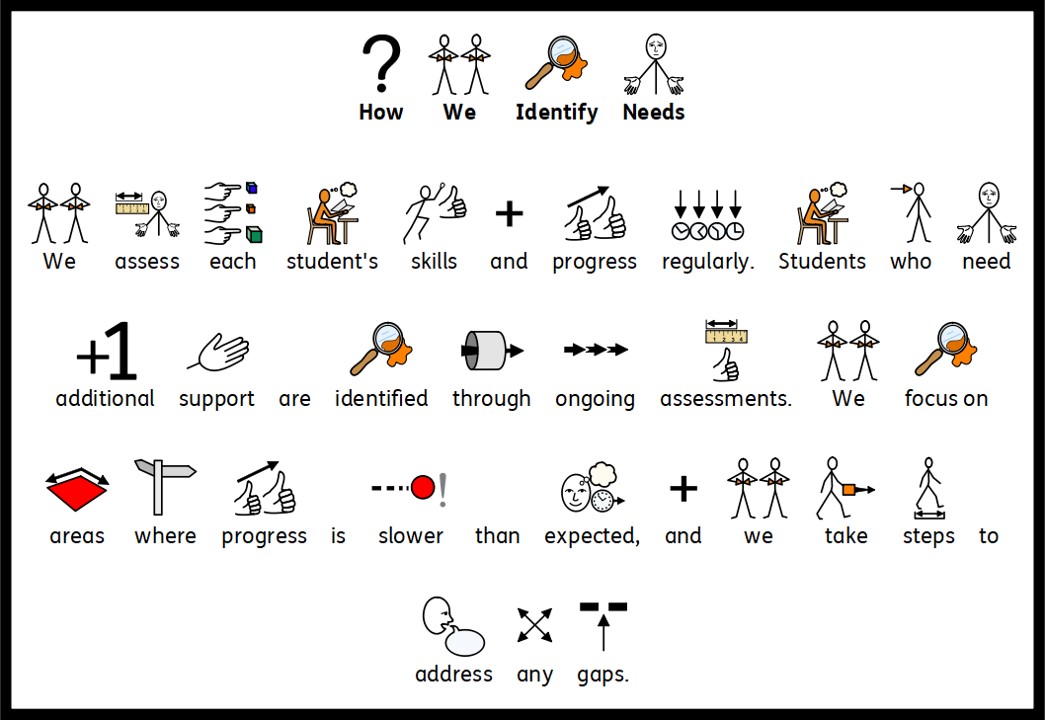
We assess each student’s current skills and levels of attainment over a period of weeks. SEMH assessments are conducted for longer-term students if required.
Class teachers make regular assessments of progress and identify students whose progress:
- Is significantly slower than that of their peers starting from the same baseline
- Fails to match or exceed the student’s previous rate of progress
- Does not close the attainment gap between the student and their peers
- Widens the attainment gap
Supporting Identified Needs with IEPs
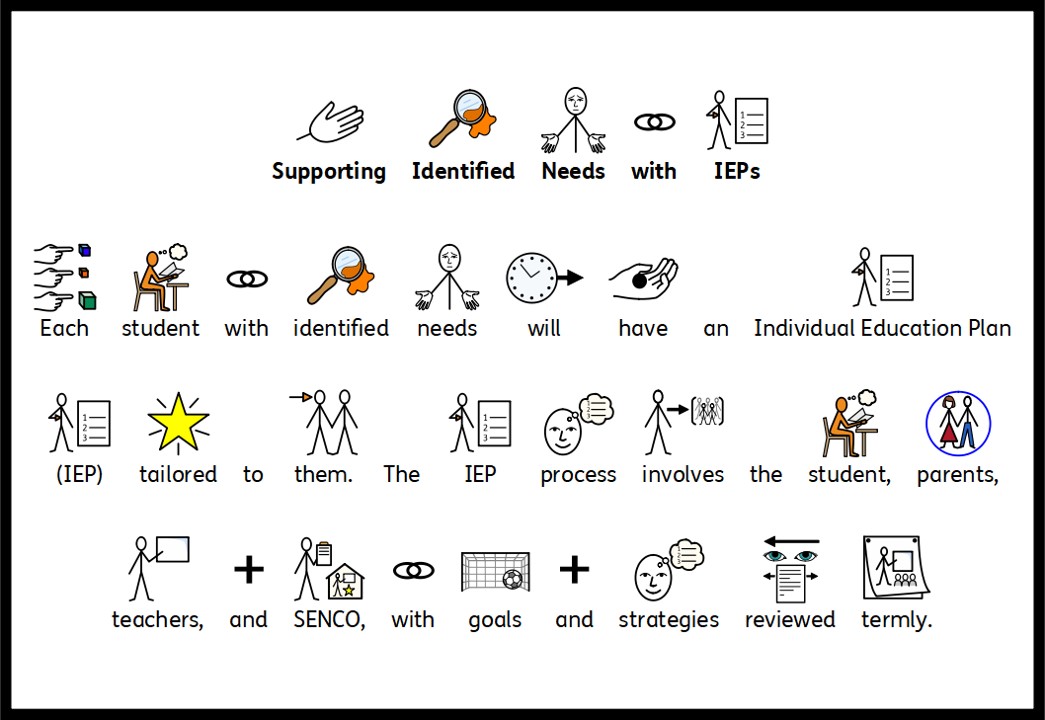
All students will have an Individual Education Plan (IEP) tailored to their specific needs. The IEP process involves students, teachers, a school representative, parents, and the SENCO. These plans are designed to provide personalised support and track progress, helping students achieve their full potential. Each IEP outlines specific goals, strategies, and resources tailored to the individual’s needs. IEPs are reviewed termly to ensure ongoing effectiveness and appropriateness of the support provided. The SENCO oversees the development and approval of IEPs to ensure consistency and effectiveness. For more information about the IEP process or to discuss any specific concerns, please contact our SENCO at: SENCO@arco.academy.
Teaching & Learning
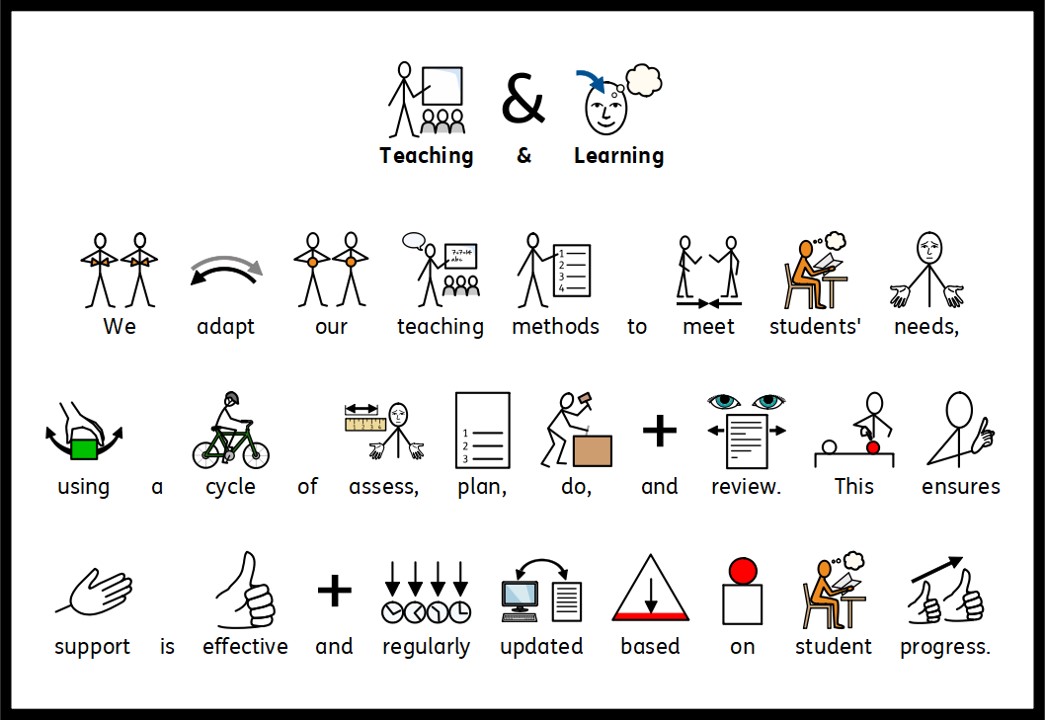
At Arco Academy, we use assessment data to identify the support needed for students, involving both students and parents in this process. We make various adaptations, including curriculum differentiation, resource adjustments, and differentiated teaching methods.
We follow a four-part cycle of assess, plan, do, and review, involving teachers, parents, and external support services. Regular assessments inform the individual plans (IEPs) for each student. The effectiveness of support and interventions is continuously reviewed to ensure they meet students’ needs and contribute to their progress.
Reviews, Parents, and Students
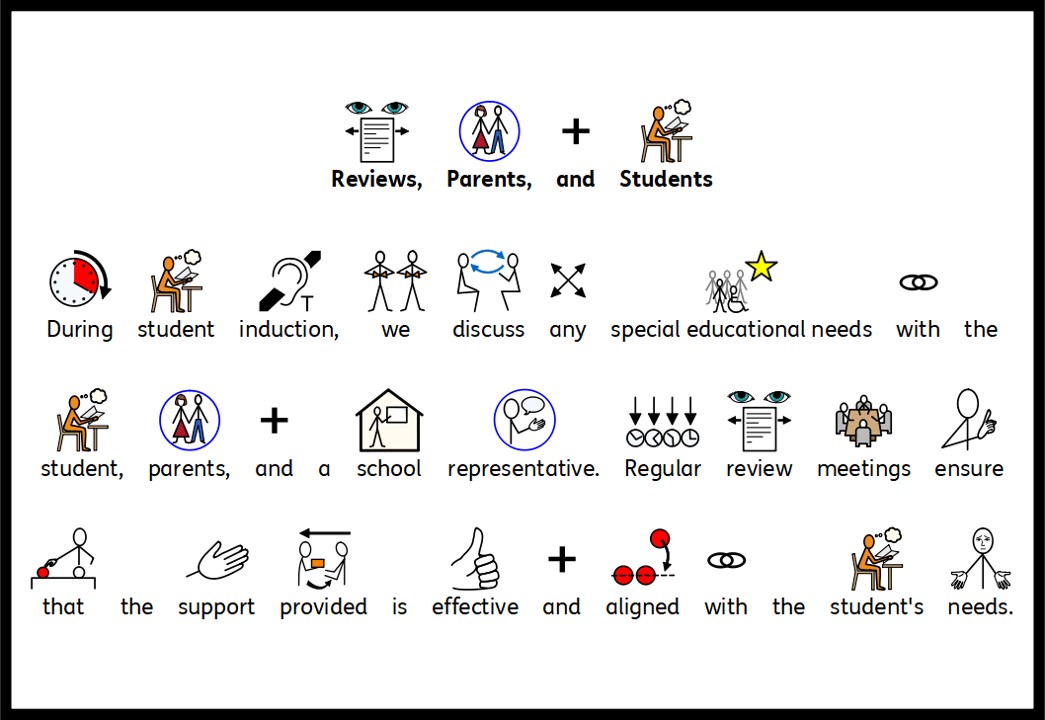
Early discussions are initiated during student inductions with the student, parents, and a school representative to identify the need for special educational provisions. These discussions focus on understanding the student’s strengths and difficulties, addressing parental concerns, defining agreed outcomes, and outlining the next steps.
Documentation from these discussions is shared with parents. If a student requires SEN support, parents are informed.
Regular review meetings are conducted based on the student’s length of stay, involving the student, parents, and a school representative to review and monitor the student’s progress, ensuring that the support provided is effective and aligned with their needs.
Students with EHC Plans
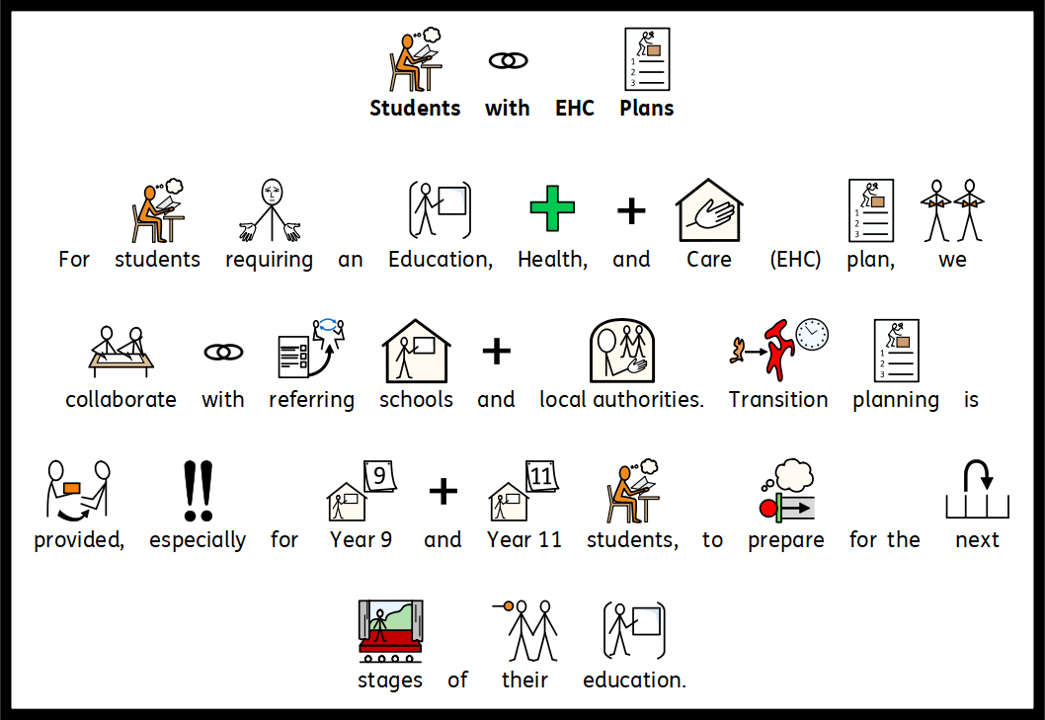
Arco Academy accommodates students with significant and sustained needs who require an Education, Health, and Care (EHC) plan. The referring school must provide details of the plan and any linked funding from the Local Authority.
The SENCO shares all SEN-related information with teaching staff. Arco Academy follows its own procedures to identify and assess special needs while collaborating with local procedures for potential EHC plan cases.
When EHC plans and additional funding are needed, proactive SEND support is utilised. Year 9 students receive transition planning and have the opportunity to create a student-centred review during their Annual Review meeting. These meetings are held cooperatively with the referring school. For Year 11 students, additional transition planning is also provided to support their preparation for post-16 education or training. Annual reviews for Year 11 students are conducted at Arco Academy if they are solely on the academy’s roll.
Inclusion Outside Lessons
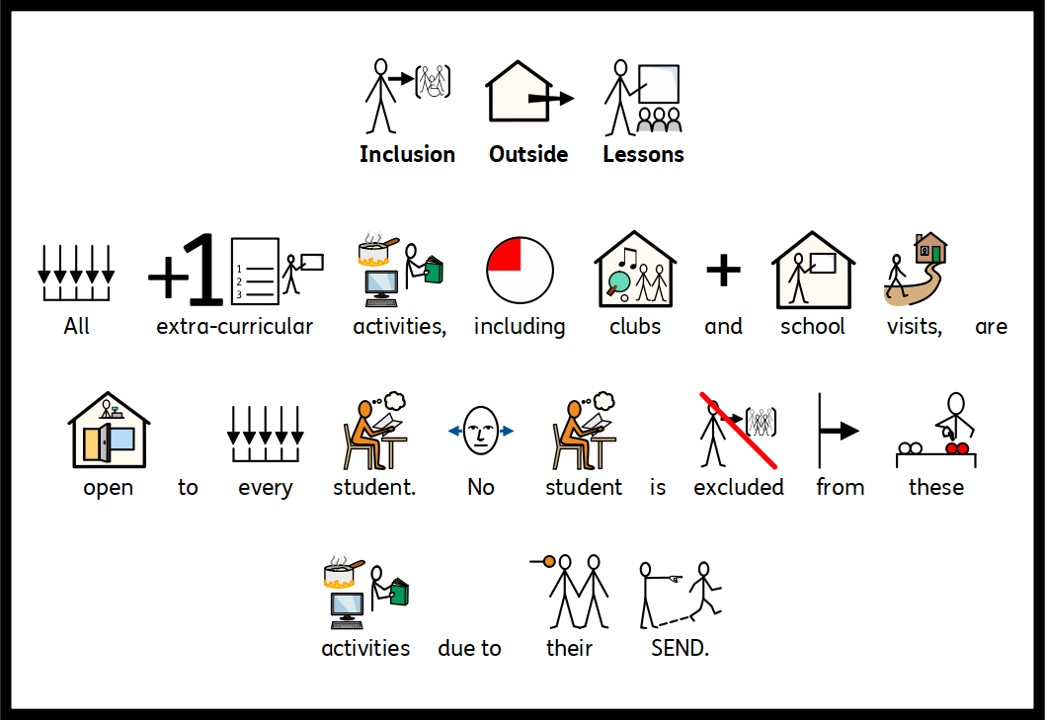
All our extra-curricular activities and school visits are available to all students, including before- and after-school clubs. Students are encouraged to participate in educational visits, sports days, school plays, special workshops, and other activities. No student is excluded from these opportunities due to their SEN or disability. For more information on how accessible the academy is for all students, please see our ‘Accessibility Plan.’
Staff Training & Development
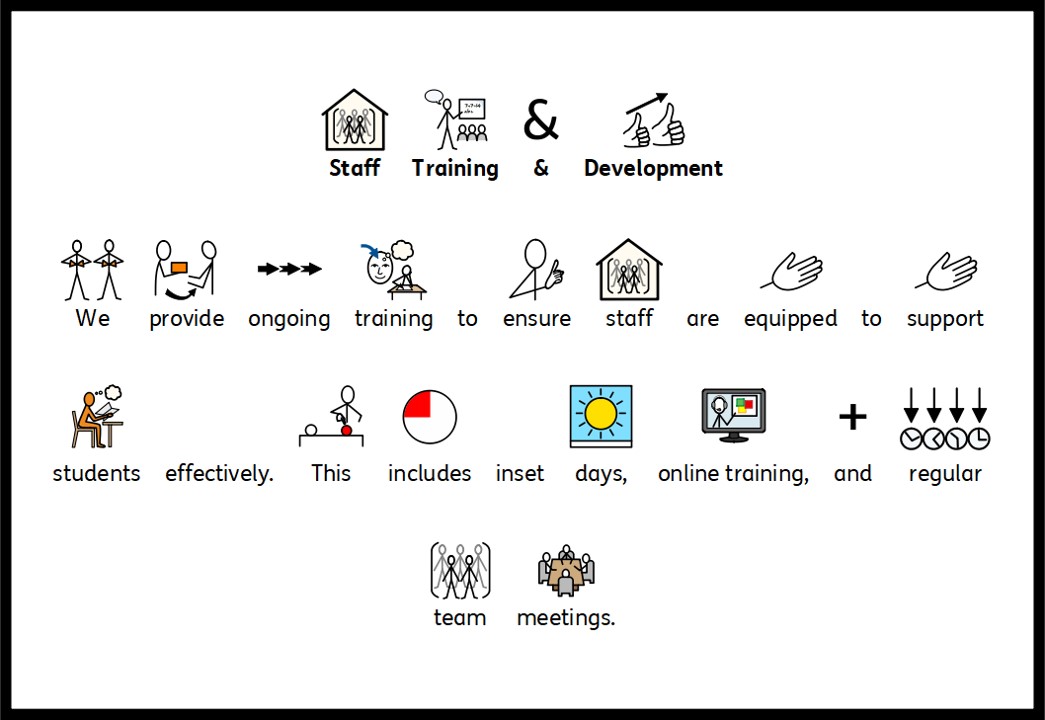
Inset days and online training provide opportunities for raising awareness, discussing current issues, and developing staff skills in meeting students’ learning needs. Daily briefing and debriefing sessions, along with regular team meetings, also support professional development.
At Arco Academy, we are committed to offering high-quality training to all staff members—whether teachers, behaviour support assistants, or administration team members—to enhance their expertise in meeting the needs of our students.
Support Services
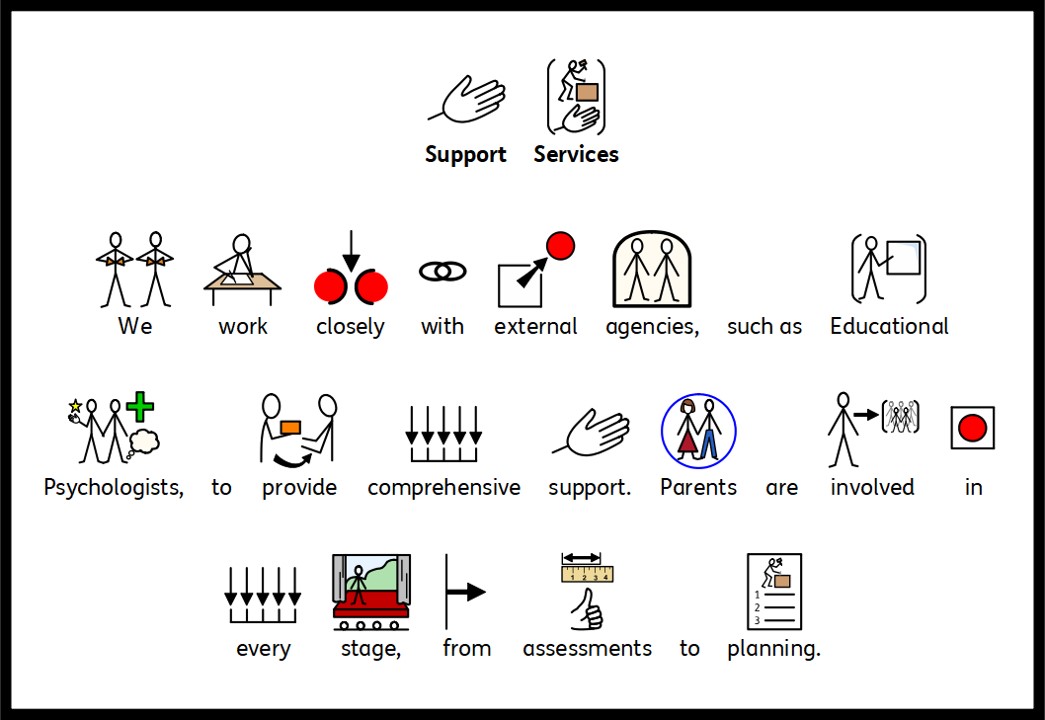
Arco Academy maintains close relationships with partner schools and external agencies to provide comprehensive support services. We consult specialists, such as Educational Psychologists and School Nurses, when necessary, always prioritising the best interests of the student. Parents are actively involved in every stage, from assessments to planning. Concerns can be directed to the Principal or SENCO. Formal complaints should follow the academy’s complaints procedures, detailed on our website and directed to the Principal.
Transition
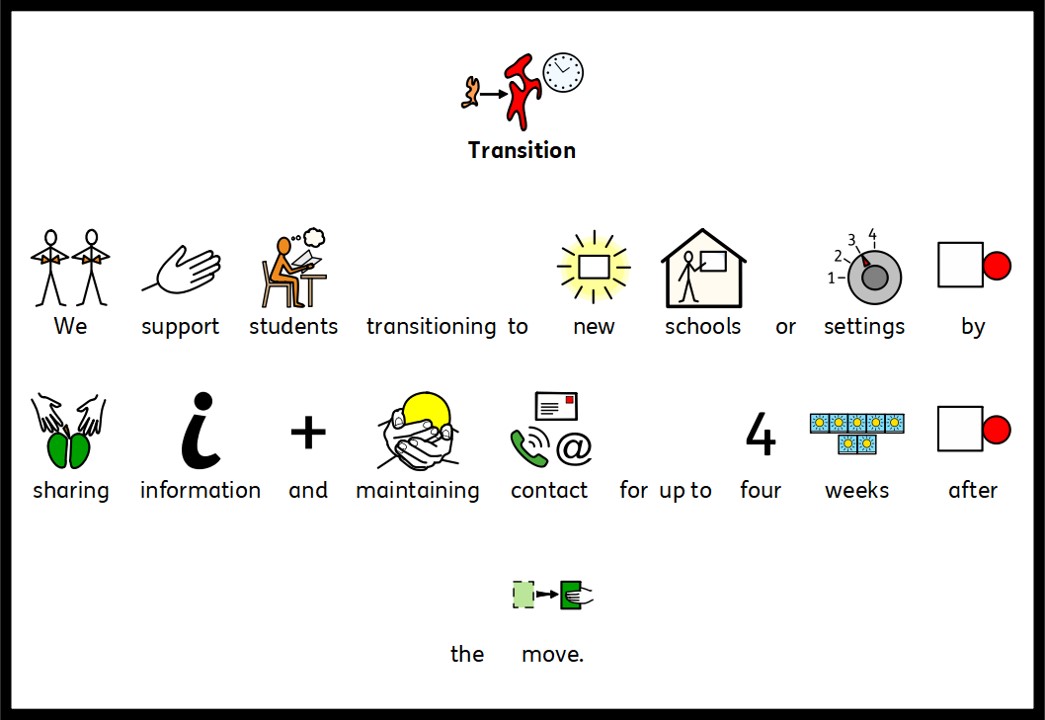
We share information with the new school, college, or other setting when a student is transitioning. If a student’s placement ends or they move to a new school, Arco Academy will maintain contact for up to four weeks through visits and mentoring meetings.
Emotional and Social Development
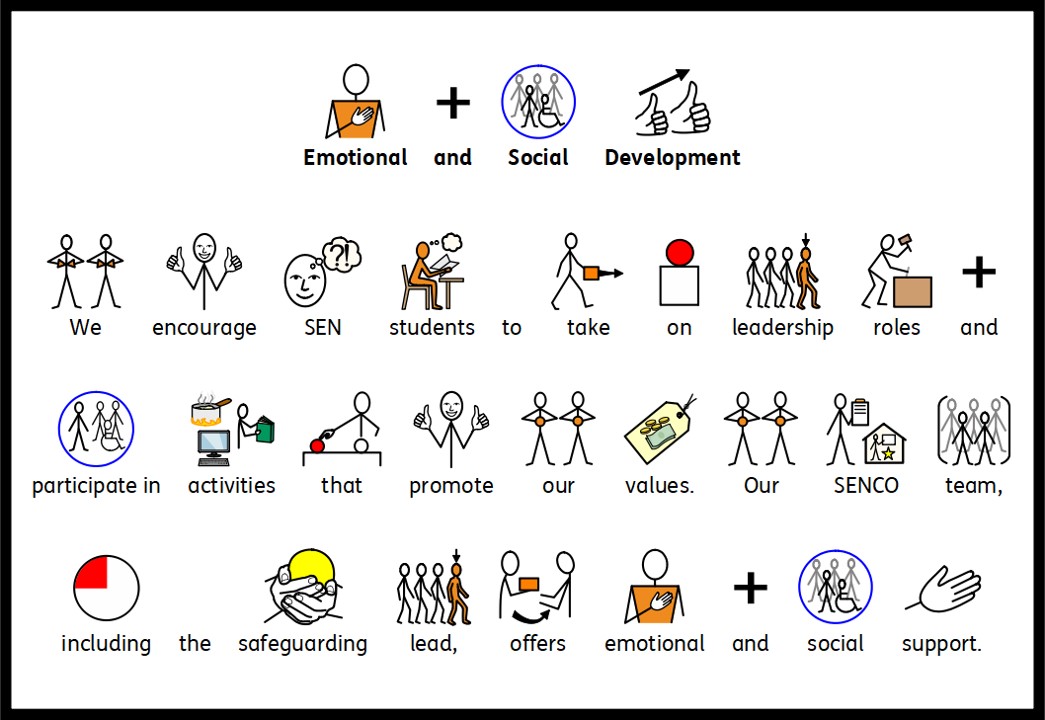
We support students’ emotional and social development by:
- Encouraging SEN students to take part in student leadership roles
- Promoting Arco Academy’s values, including High Standards, Personal
- Responsibility and Professionalism, Integrity, Healthy Mind and Body, and Care and Respect
- Providing support through our SENCO team, which includes the safeguarding lead, mentor, and school home support practitioner
- Upholding a zero-tolerance approach to bullying
Complaints
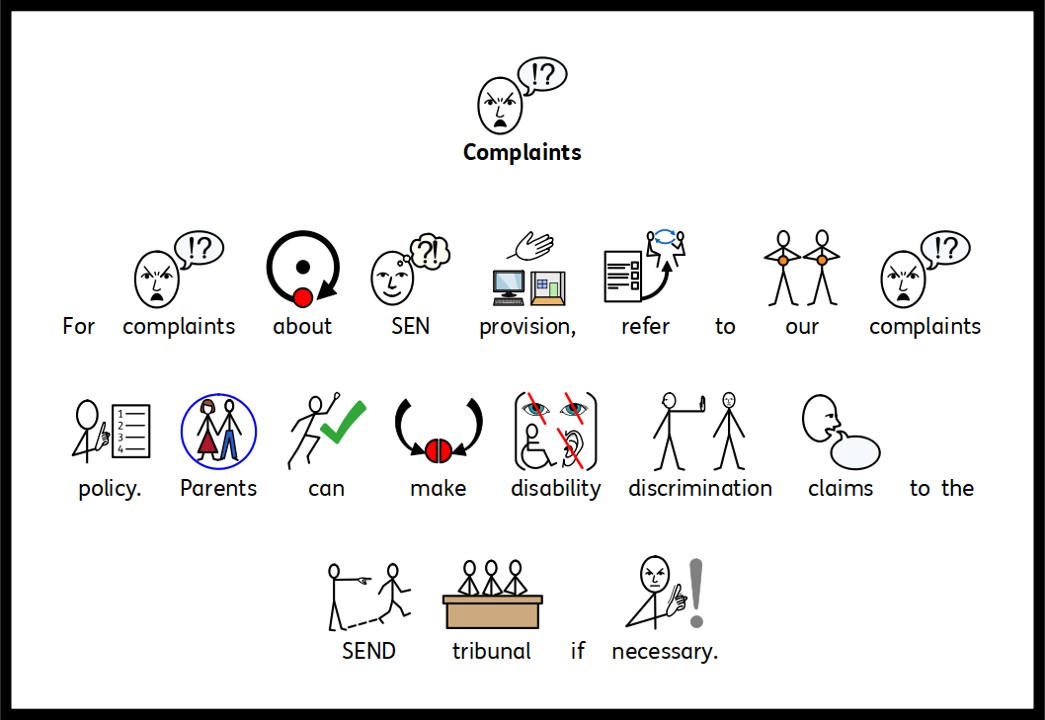
For complaints about SEN provision, please refer to our complaints policy. Parents of students with disabilities have the right to make disability discrimination claims to the first-tier SEND tribunal if they believe the academy has discriminated against their children. Claims can be made regarding:
- Exclusions
- Provision of education and associated services
- Making reasonable adjustments, including the provision of auxiliary aids and services
Evaluation
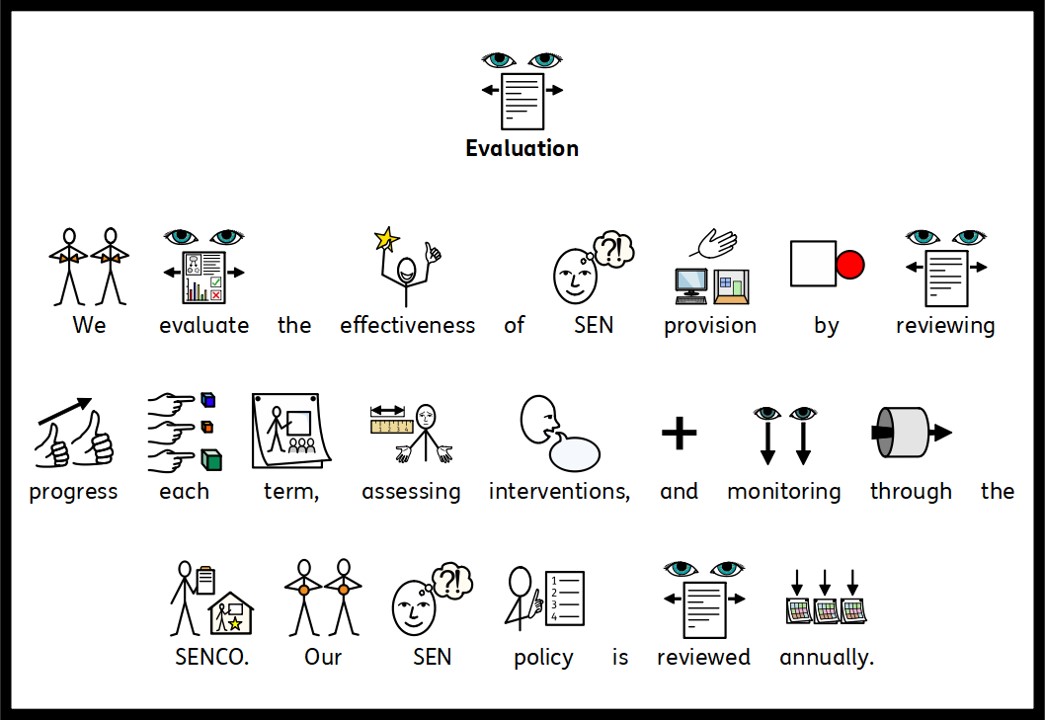
We evaluate the effectiveness of SEN provision by:
- Reviewing students’ progress towards their goals each term, as recorded in their IEP and PSP
- Assessing the impact of interventions half-termly
- Using student questionnaires
- Monitoring by the SENCO
- Holding review meetings to discuss progress
Our SEN policy and information report are reviewed annually and approved by the Board of Advisors. Updates will be made if any changes occur during the year.
Local Offer
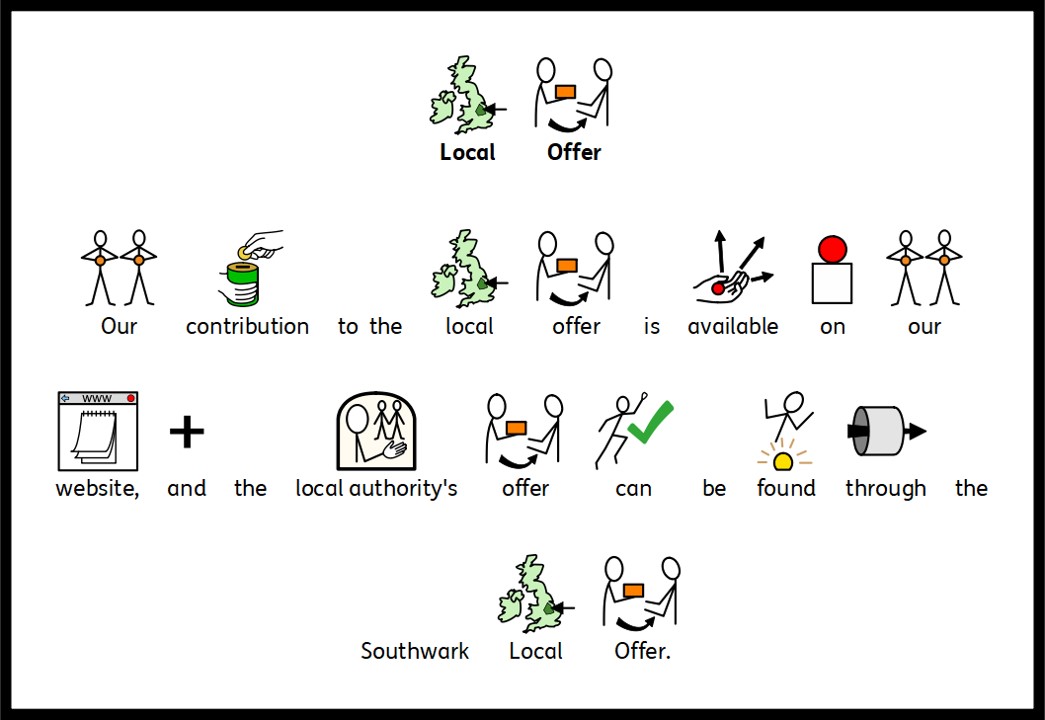
Our contribution to the local offer can be found here: Arco Academy Local Offer
The local authority’s local offer is available here: Southwark Local Offer
Additional Information
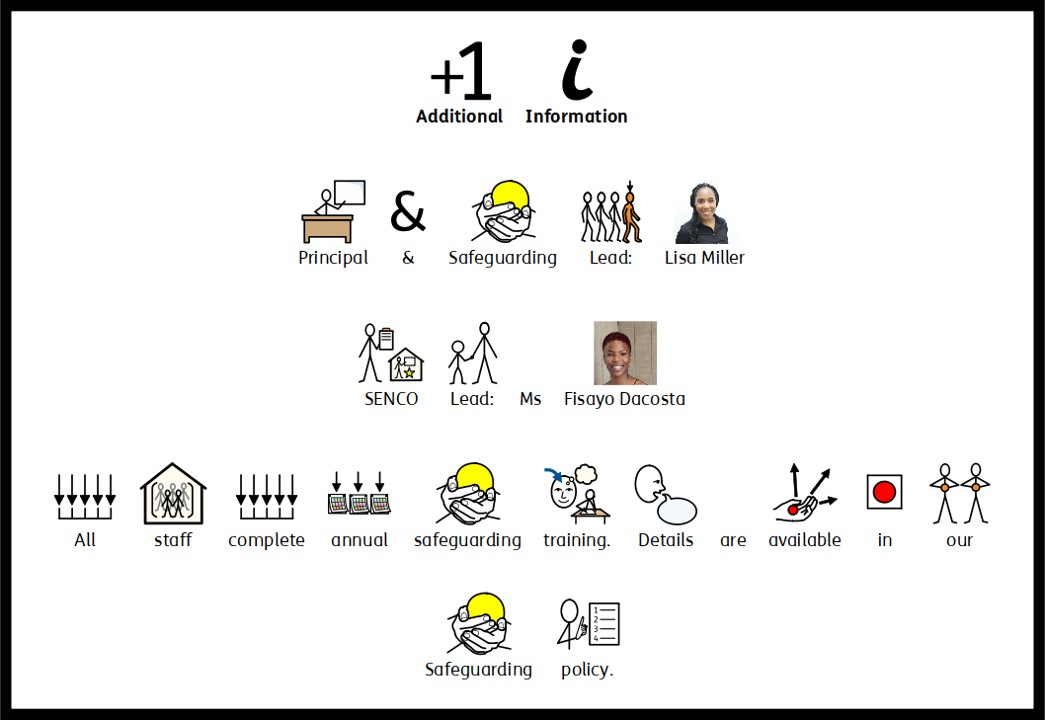
Andre Bailey is the Principal and the Designated Safeguarding Lead.
Ms Fisayo Dacosta is the SENCO Lead.
All staff undertake annual safeguarding training. Further details are available in the Safeguarding policy on our website.
Policy Links
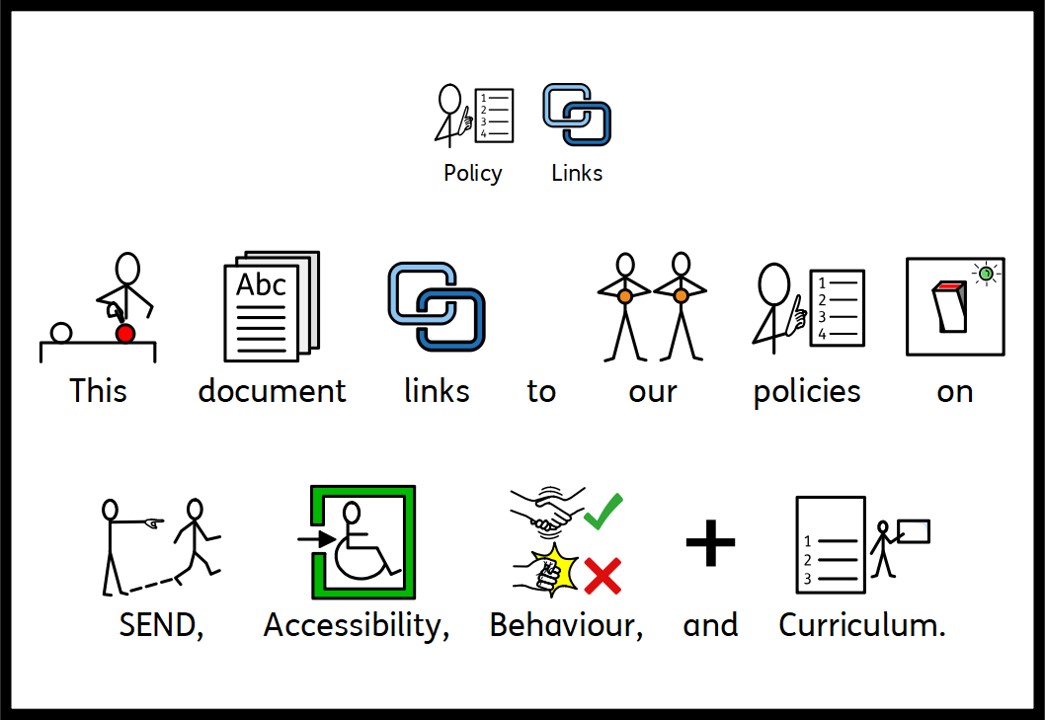
This document links to our policies on:
- SEND Policy
- Accessibility Plan
- Behaviour Policy
- Curriculum Policy
